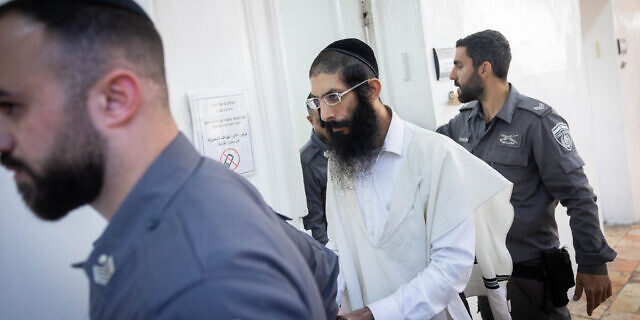A Beit Shemesh man was indicted on Friday over the torching of a cellphone store in Jerusalem several months ago.
According to prosecutors, Yehoshua Dadon, 34, and three others broke into the store in October and set it alight because the shop did not comply with religious strictures restricting the devices.
The resulting blaze destroyed the store and affected several adjacent buildings, causing around NIS 600,000 ($170,000) in damages. Dadon was charged with arson, extortion by threats and obstruction of justice.
Prosecutors asked the Jerusalem District Court to order he remain in custody until the end of the criminal proceedings.
Dadon’s arrest sparked violent demonstrations in the capital’s Mea Shearim neighborhood earlier this month. Mirel Dzalovsky, a 40-year-old mother of 11, was seriously injured in the riots after she was hit by a large burning dumpster sent rolling down a street by ultra-Orthodox extremists.
Dzalovsky is still unconscious and on a respirator at Shaare Zedek Medical Center.
Many ultra-Orthodox Jews use “kosher” phones — devices stripped of internet, radio, messaging and video capabilities — on the instruction of rabbis.
The issue and its regulation are largely controlled by a body called the Rabbinic Committee for Communications, which holds strong leverage over the “kosher” cellphone business across the country, as well as powerful tools that have societal and commercial effects.
The fire erupted at a store called Kosher Phone, located in the ultra-Orthodox Geula neighborhood in the capital. Similar incidents have been reported in the city before, especially at businesses that have refused to cooperate with the committee.
The shop’s owner was certain he was targeted by extremists after recently losing a certificate provided by the rabbinic committee.
Owner Itzhak Deri, 26, said he used to work closely with the committee and adhere to its instructions. But his refusal to stop selling a smartphone deemed by the committee as “non-kosher” meant losing a certificate issued by the committee and widely accepted by the community as necessary for operating cellphone stores in Haredi neighborhoods.







